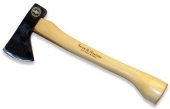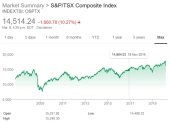Unfortunately, backing money with any kind of land doesn't make economic sense.
A quick review of basic economics for anyone interested:
Money isn't 'backed' by anything. Money is the good or goods that a culture has settled upon as a universal intermediary. This occurs because it satisfies certain qualities (relatively scarce, high subjective value per unit weight, divisible, durable, countable, fungible, and a store of wealth). Different societies throughout history have used widely different materials as money. Some of the more famous ones include shells, giant round stones, gold, silver, copper, paper, and most recently, digital representations of numbers.
The idea of backing a currency (not money) comes from the late 19th and early 20th century when governments around the world introduced fiat currency that was convertible for precious metals. There basic reason behind this was that fiat currencies allowed governments to spend a great deal more than they actually had in money since printing paper is relatively cheap. The governments attempting this, however, were perfectly well aware that people would not simply accept a brand new currency based on the
local rulers' say-so. As a result they introduced the currencies as a representation of money - that is a certain amount of currency represented a real physical amount of money (gold or silver). Over time, people became more accostomed to the paper currency and bit by bit, all governments but one removed the convertibility of the currency. By 1945 only the US had convertible currency, but it was only convertible by other nations. The people of the US had been forbidden to use gold as money in 1933. There was still silver in use until 1965 though. Then in 1971 all official ties to gold as money were severed, and the paper became true money. Not very good money since it violates the scarcity and store of wealth qualities, but money accepted by the vast majority of people nonetheless.
Anyways, back to the idea of land as money. Land doesn't work as money because it is not truly divisible and fungible. Before you say "of course you can divide land" divisible in this sense means worth the same after division. 2 acres of land is not worth the same as two 1-acres. Land is also not fungible. 2 acre parcel A is not worth the same as 2 acre parcel B.
Eisenstein's motivations are in the right place. Our current monetary system is disastrous and steals value from you and me every day. You can opt out by not participating in fractional reserve banking (or at least to the greatest degree possible). But recognize the difference between monies, near monies, assets.
/diatribe






